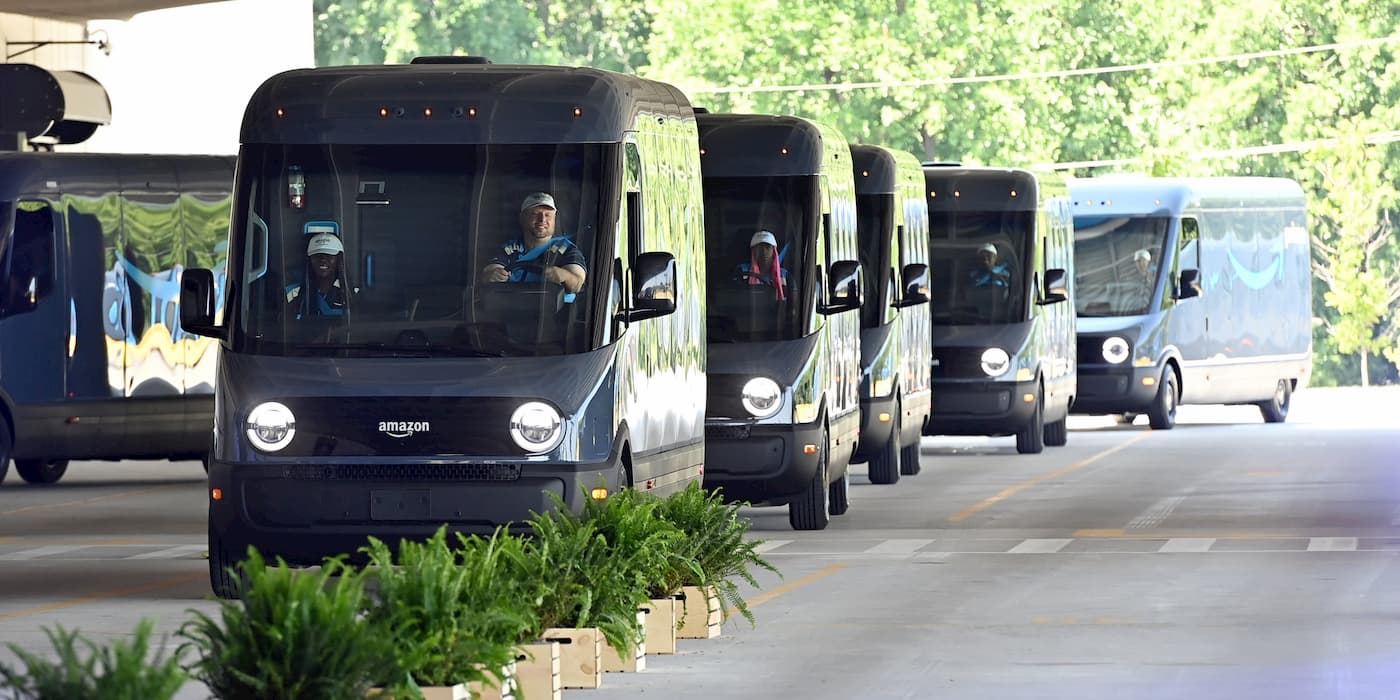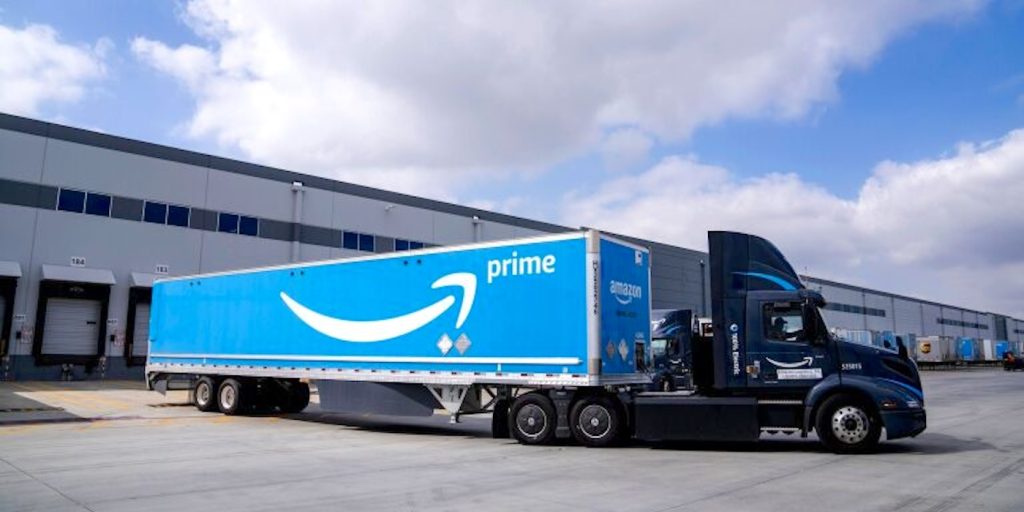
2024 was big year for Amazon – in addition to becoming the first online retailer for Hyundai cars, the company kept busy putting a fleet of autonomous forklifts, order picking AI-powered robots, and a milestone 20,000th electric delivery van on the road.
Let’s start with the vans. Amazon recently reached milestone putting its 20,000th, AI-enhanced delivery van onto US roads.
Amazon famously partnered with Rivian to develop those vans, pouring serious money into a concept that (at the time) was little more than a sketch. Less than three years later, the vans were on the road, delivering kitty litter with free, 2-day shipping to customers who can’t be bothered to drag themselves to Costco – and it’s hard to argue with the vans’ success.
Amazon EVs are everywhere

To date, Amazon vans from Rivian have delivered nearly a billion packages to customers in the US. Amazon plans to rollout 100,000+ delivery van fleet by 2030.
On the warehouse side, the autonomous forklift market is experiencing remarkable growth, and is projected to expand at a compound annual growth rate (CAGR) of 11.4%, putting the self-driving forklift market at something like $12.5 billion by 2034 with the 2-4 ton segment making up about 53% of total revenue.
Like the Fox Robotics forklifts used at arch-rival Walmart’s warehouses, the autonomous forklifts in use at Amazon’s smart warehouses are equipped with advanced sensors to help them navigate the complex warehouse environments and perform critical tasks.
Despite the higher up-front costs of autonomous forklifts, they can offer companies like Amazon long-term benefits. As EV Magazine writes:
In Amazon’s fulfillment centers, autonomous forklifts play a key role in optimizing the flow of goods. By reducing the reliance on manual labour, they minimize human error, enhance precision in material handling and enable faster order processing … the forklifts operate continuously without breaks, increasing productivity and ensuring swift and efficient customer order fulfillment.
STELLA NOLAN, EV MAGAZINE
Amazon entered into a seven-year agreement with Balyo, a French company that manufactures autonomous forklifts based on Yale and Hyster models, back in 2019. At the time, Supply Chain Dive reported that the deal could be worth some $346 million and see the online retailer acquire 29% of the robotics firm’s stock.
Electrek’s Take

It seems strange to be discussing robotic forklifts just a few short weeks after reporting on VW and Audi threatening to shut down factories.
That said, we’re a long way from the days when Sam Walton would come on TV to talk about Walmart being the place to shop for “Made in America” products, too. But, while it’s easy enough to dismiss Amazon’s automation efforts as anti-labor, the reality is far more complicated as a nationwide operator shortage continues to impact logistics and construction.
SOURCES: EV Magazine, Supply Chain Dive, the Buzz, Market Research Future.
